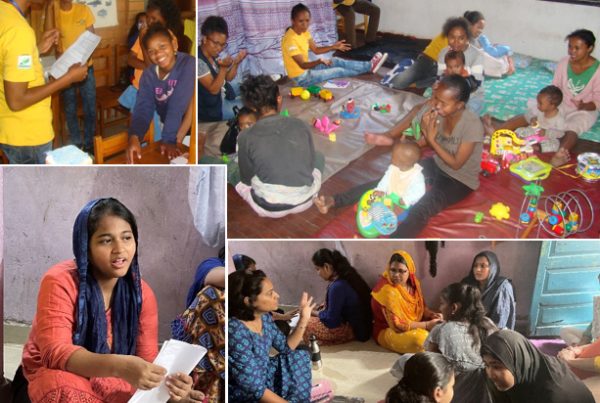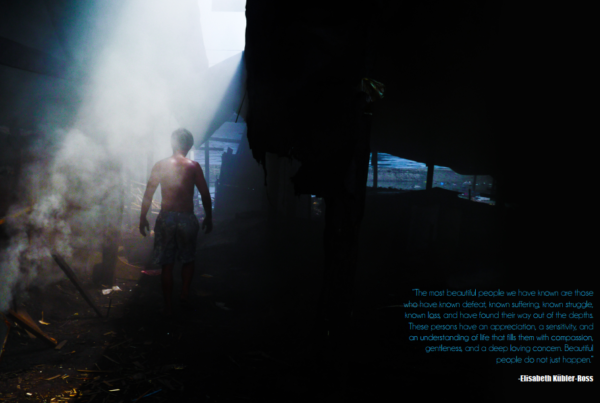Uma Panse
INTRODUCTION
It is known that India is the youngest country and with more than 2.5 billion populations is the second most populous country in the world currently. This offers an extremely suitable and potent condition for progressive development of the country. The goal of development is to improve the quality of life of all people and thus human beings must be at the centre of any sustainable development strategy.
To ensure the economic well-being of growing populations, investment in human resource development must be given priority, by increasing access to, among the other things, information, education, skill development and employment opportunities.
Unless each and every person from the society is taken along, progressive development will not sustain. If strategies, policies, investment are not done to strengthen underprivileged society simultaneously, disparity will keep on increasing and it may pose different challenges. Dependents will increase putting pressure on the economy. Thus, while taking the weaker section or less productive sections along may slow down the process of development and growth, in the long run, it still would stimulate faster, holistic and sustained progressive development.
Organisations, whether Public, Private or from social development sector, need to contribute towards this aim of sustained and inclusive development. Efforts are required at macro as well as micro level, at national as well as local mohalla level.
The total slum population in Pune is above 32% and in PCMC area it is about 15%, from about 550 slums consist of approximately 250,000 families (tentatively 1250000 population). Presence of such substantial numbers of slums, experience of Non Profit Organisations (NPOs) working with slum dwellers and the provisions relating to Corporate Social Responsibility (CSR) under the Companies Act, 2013 asks the Corporate sector and social development sector to come together to work with the slum population more methodically and meticulously with sustainable approach.
Corporate sector, through CSR initiatives, has entered the field of Social Development. It recognizes the need to invest in people development. The areas defined for intervention for CSR, as per the CSR Rules laid in the Companies Act, 2013, enfold all the needs of the poor section of the society. However, social development not being the core business for corporate sector, partnering with experienced and expert organisations from development sector would be a win-win scenario. The social development sector too needs support not only through financial support, but also to take the organisations towards more sustained route by adapting better administrative and organisation development skills.
Swabhimaan is one of such NPOs which functions as the technical support platform for Family Development Program (FDP) run in Pune slums for last 15 years by partnering with community based organisations (CBOs) for implementation.
Poverty is often accompanied by unemployment, malnutrition, illiteracy, low status of women, exposure to environmental risks and limited access to social and health services. Sustained economic growth in the context of sustainable development is essential to work towards eradicating poverty.
With the same larger aim, FDP intends to reach to needy slum populations in Pune/ PimpriChinchwad and Mumbai who receive the support and guidance of trained social workers on mutually identified needs (on health, education, socio-economic situation) through frequent contacts. Ultimately, FDP aims at strengthening and developing capacities of the families to be aware, informed and self-sufficient. To achieve this, FDP networks with various existing services, governmental as well as non-governmental.
The target population for FDP primarily is urban poor, living in slums, working in the informal sector or without stable employment, low on awareness/ knowledge about various issues and available services related to health, education, documents, law, fair finance, etc. Thus the area for intervention is selected through baseline survey and detail analysis. Every project designed to help development of underprivileged population should inherit strengthening capacities and abilities of individuals, groups and communities to enter a process of self-determined development. FDP can thus support or could be weaved in any development project.
In last 10 years, Swabhimaan, with nine partner organisations, has reached to more than 20,000 family units from for about 40 different slums from Pune Municipal Corporation (PMC) and Pimpri-Chinchwad Municipal Corporation (PCMC). The program has developed SMART projects which have evolved with experience and changing scenario. FDP with its unique approach to focus on strengthening family by bridging gaps between needs of families and available services, without duplicating services, has established its advantages and need for expansion.
This study is an effort to identify the needs of the underprivileged population through baseline survey of a new slum, propose different intervention strategies and finding partners from CSR domain to support the intervention program/s.




